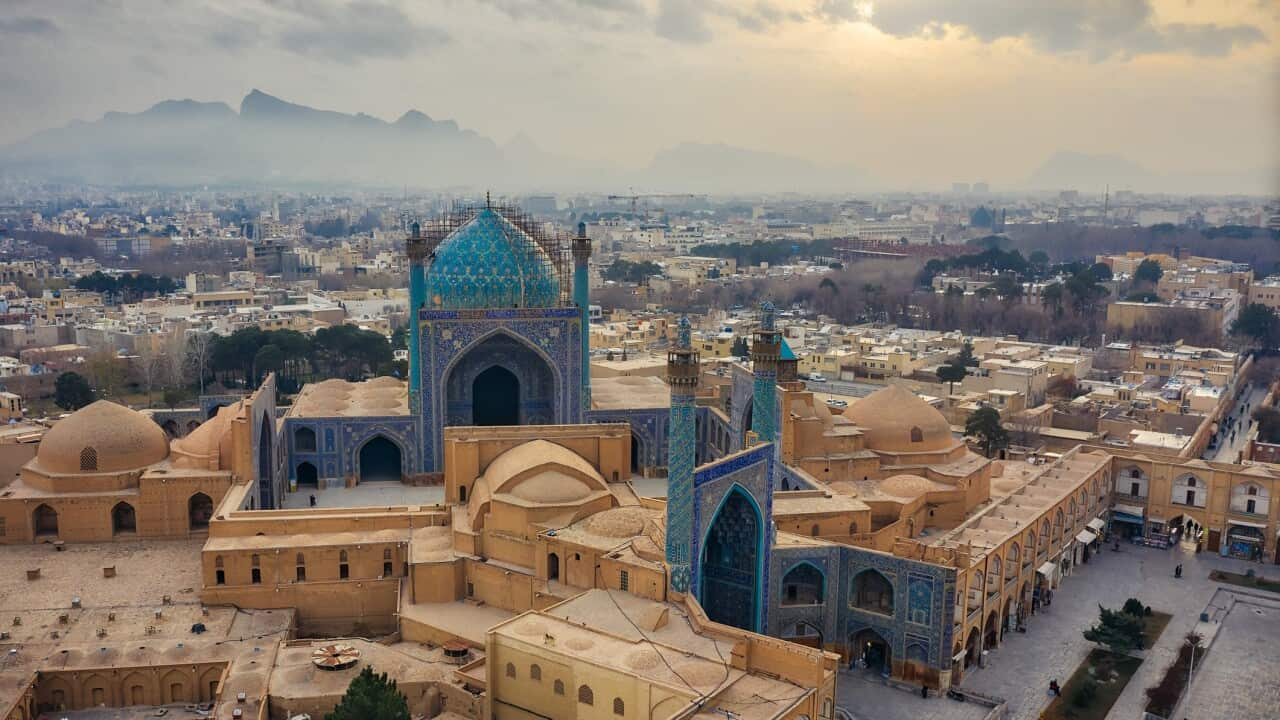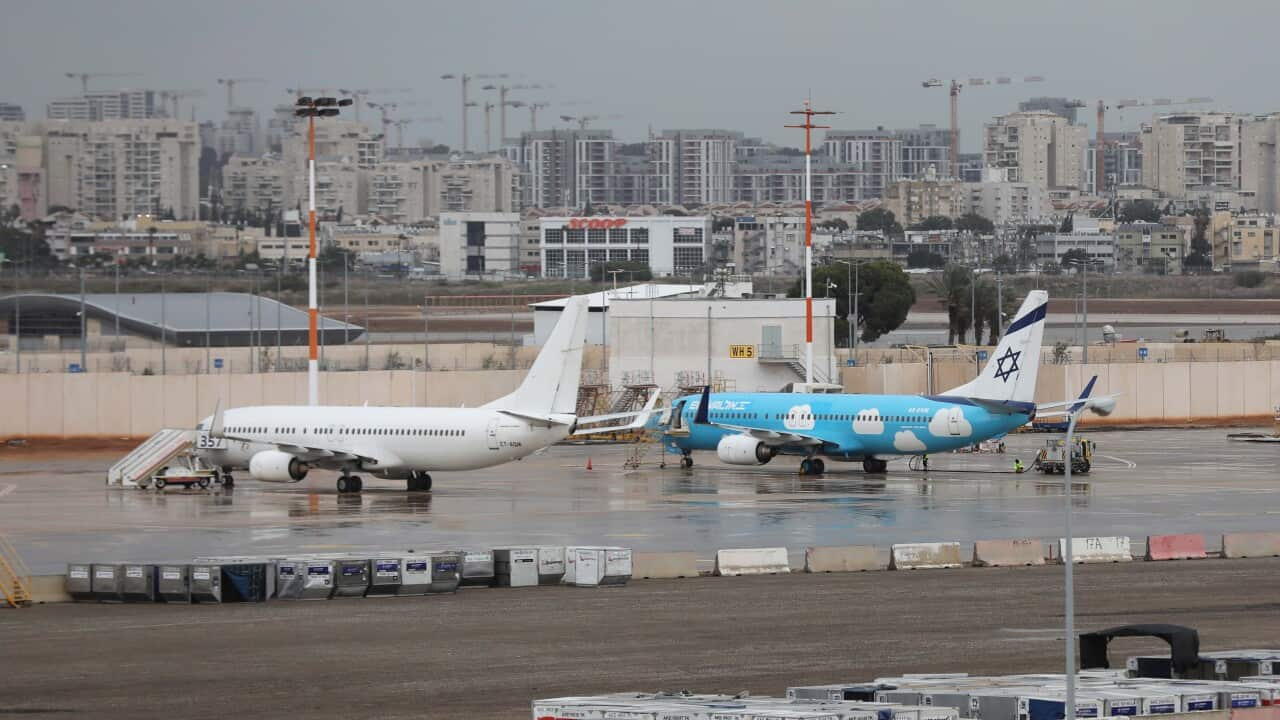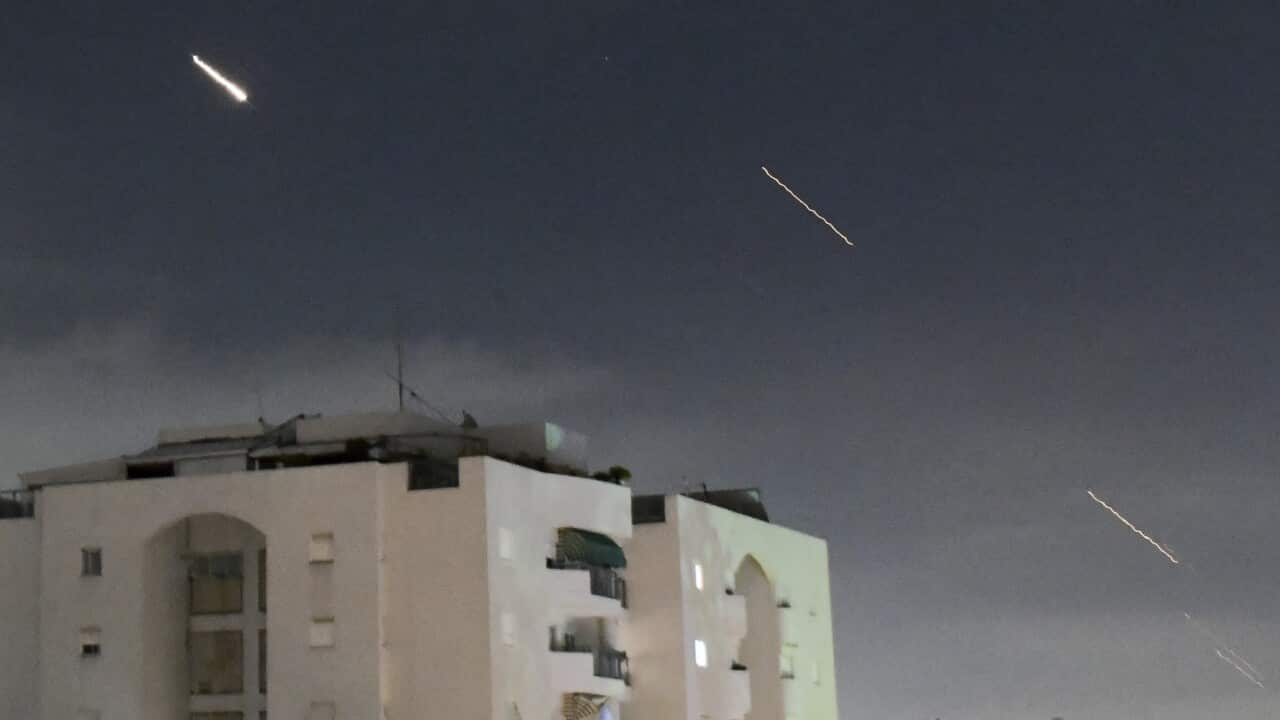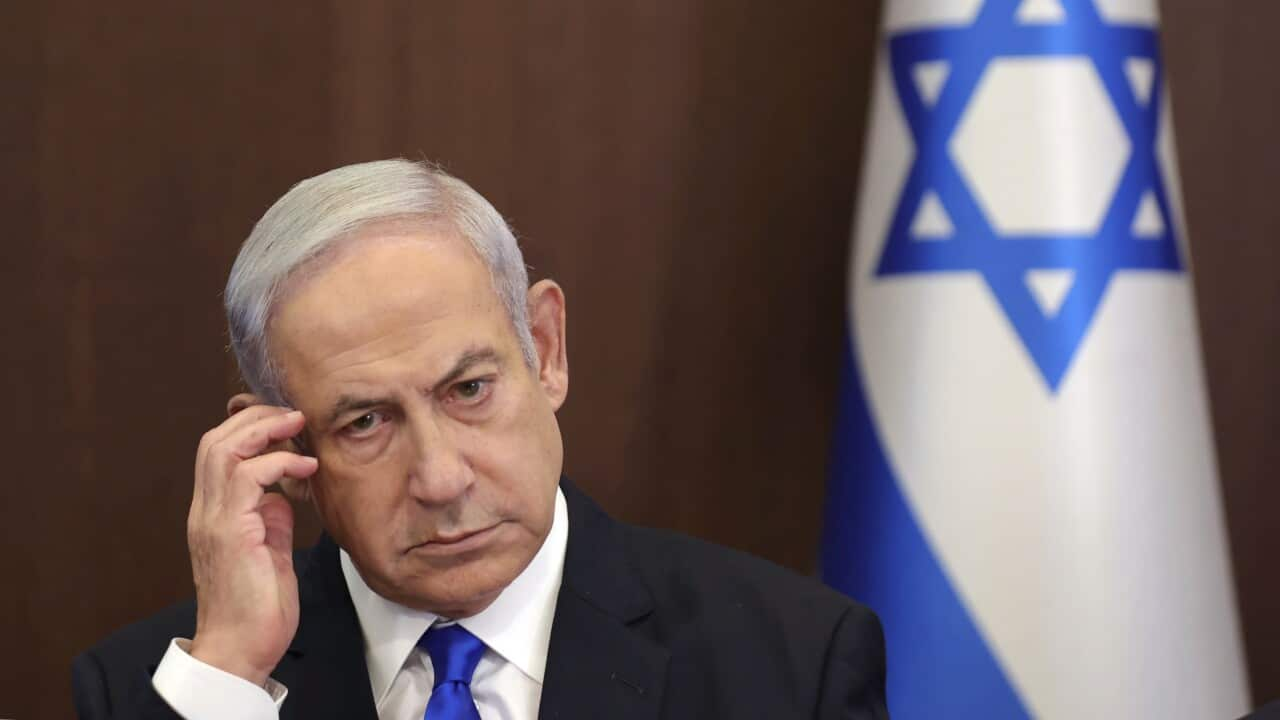Key Points
- Iran's state media has reported explosions in central Isfahan.
- US officials reportedly said the strikes were carried out by Israel.
- Australia has said it is "extremely concerned".
Iran's state media has reported explosions in the central city of Isfahan, as United States media quoted officials saying Israel had carried out .
The reports come less than a week after Iran launched a barrage of more than 300 drones and missiles in its first-ever direct assault on Israel's soil.
"Australia remains extremely concerned about the potential for miscalculation and further escalation of conflict in the region," acting foreign minister Katy Gallagher said in a statement.

Source: SBS News
"Australia will continue working with partners to try to reduce tensions and prevent further regional spillover."
Here is what we know so far about the reported explosions inside Iran and the conflicting reports over what exactly caused them.
Where were the reported explosions?
Iran's Fars news agency reported "three explosions" were heard near the Shekari army airbase in the northwest of Isfahan province, while Iran's space agency spokesperson Hossein Dalirian said "several" drones had been "successfully shot down".
"There are no reports of a missile attack for now," Dalirian said on social media platform X.
Nuclear facilities in Isfahan were reported to be "completely secure", Iran's Tasnim news agency reported, citing "reliable sources".
"Reports indicate there was no major damage or large explosions caused by the impact of any air threat," the official IRNA news agency said.
The most senior military officer in Isfahan, brigadier general Siavash Mihandoost, told state television that the loud sound that people had heard was caused by defence systems shooting at a target in the air, not an explosion on the ground.
How did Iran react?
Air defence systems over several Iranian cities were activated, state media reported.
Flights to the cities of Tehran, Isfahan and Shiraz were suspended, as were airports across several parts of the country, according to the Mehr news agency.
Flight-tracking software showed commercial flights avoiding western Iran, including Isfahan, and skirting Tehran to the north and east.
One Flydubai plane that had already departed for Tehran had to return to Dubai after the Iranian capital's airport was closed, the Emirati airline said in a statement.
On Friday morning, Iranian television carried a live feed of normal road traffic at a roundabout in Isfahan.
Iran's semi-official Mehr News Agency reported there were "sounds heard over Isfahan", but the city was "completely calm and secure," Al Jazeera reported
What have other states said?
Washington received advance notice of Israel's reported strike, but did not endorse the operation or play any part in its execution, US media quoted officials as saying.
United States broadcasters ABC and CBS News reported the strikes had been carried out by Israel, quoting US officials. There was no immediate comment from the White House or Pentagon.
The Israeli military told the Agence France-Presse: "We don't have a comment at this time."
European Commission president Ursula von der Leyen said, "We have to do everything possible (so) that all sides restrain from the escalation in that region ... It is absolutely necessary that the region stays stable and that all sides refrain from further action,"
Why are tensions high between Iran and Israel?
Iran-backed armed groups across the region have carried out attacks on Israel since the war in Gaza broke out in October.
Both Lebanon's Hezbollah and Palestinian militant group Hamas are backed by Iran.
But the recent, direct Israel-Iran exchanges have ventured into unprecedented territory.
In response to a deadly attack on the Iranian consulate in Damascus on 1 April widely blamed on Israel, Tehran fired hundreds of missiles and drones at its arch-foe on Saturday.
Israel had vowed to respond to the attack, which was mostly intercepted and caused no deaths.
Just hours before the explosions were heard inside Iran on Friday, its foreign minister warned that Israel would come to "regret" any attack on his country.
Speaking at the UN Security Council during a meeting on the Middle East, Iran's Foreign Minister Hossein Amir-Abdollahian called the Islamic republic's weekend barrage a "legitimate defence" and said Israel should "stop any further military adventurism".
On Thursday, United Nations secretary-general António Guterres painted a dark picture of the situation in the Middle East, warning that spiralling tensions over the war in Gaza and Iran's attack on Israel could devolve into a "full-scale regional conflict".
"The Middle East is on a precipice. Recent days have seen a perilous escalation — in words and deeds," Guterres told the UN Security Council.
"One miscalculation, one miscommunication, one mistake, could lead to the unthinkable: a full-scale regional conflict that would be devastating for all involved," he said, calling on all parties to exercise "maximum restraint".












